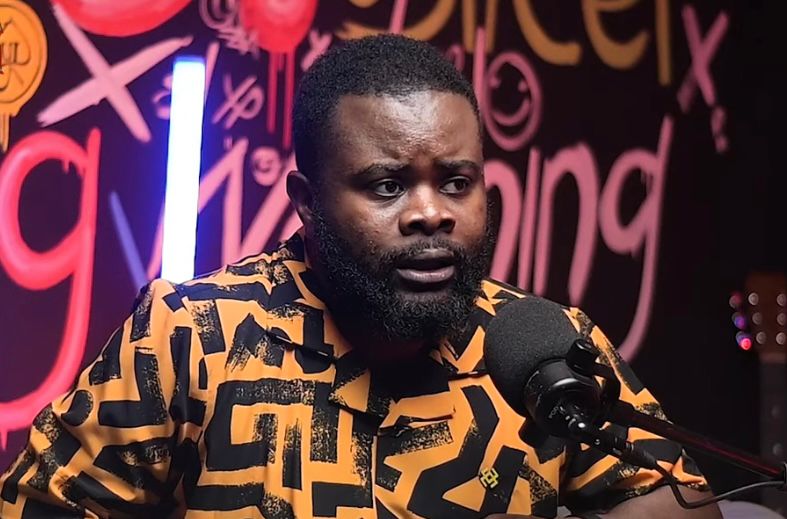John Peasah, a Ghanaian actor widely recognized by his stage name “Drogba” from the popular YOLO series, has found himself at the center of a media whirlwind following reports of an alleged miraculous healing at a church event. Peasah, who has been battling a debilitating neurological condition, reportedly Stiff Person Syndrome (SPS), attended a Friday Miracle Night service at Christ Embassy in August 2024. During the service, he experienced a remarkable improvement in his physical abilities, managing to perform actions that had been impossible for him due to the debilitating effects of SPS. Overwhelmed with gratitude and recognizing this as a positive step in his journey towards recovery, he later returned to the church to share his experience, framing it as a testimony to his progressively improving condition. However, his testimony was subsequently misconstrued by online bloggers, leading to widespread claims of an instantaneous, miraculous healing. This misrepresentation has not only impacted his public image but also significantly hampered his ongoing medical fundraiser.
Stiff Person Syndrome, the condition Peasah is grappling with, is a rare autoimmune neurological disorder that leads to progressive muscle stiffness and spasms, often accompanied by chronic pain and other disabling symptoms. The stiffness primarily affects the trunk and limbs, making everyday activities like walking, bending, and even maintaining balance extremely challenging. The unpredictable and painful muscle spasms can be triggered by a variety of stimuli, including sudden movements, loud noises, and emotional stress. In severe cases, SPS can lead to significant disability, making individuals dependent on others for basic tasks. The condition also impacts the respiratory muscles, potentially causing life-threatening breathing difficulties. Double vision, a symptom Peasah has also reported experiencing, further complicates the daily lives of those with SPS, affecting their ability to perform tasks requiring visual acuity. There is currently no known cure for SPS, but treatments focus on managing symptoms and improving quality of life through medication, physiotherapy, and other supportive therapies.
Peasah’s experience at the Christ Embassy service, though personally significant, was not the instantaneous miracle portrayed by online media. He maintains that it was a moment of relief and encouragement, a sign of gradual improvement in his long and arduous journey with SPS. The narrative of a sudden, complete healing spun by bloggers, however, quickly gained traction, overshadowing the reality of his ongoing struggle and the need for continued medical intervention. In an interview on the “Street is Watching” podcast, Peasah expressed his frustration with the misrepresentation, emphasizing that he had never claimed a miraculous cure, but rather a sign of progressive healing. He highlighted the damage caused by this misinformation, particularly the negative impact it has had on his fundraising efforts.
The actor had launched a GoFundMe campaign with a goal of raising $280,000 to cover the cost of specialized treatment abroad. These funds were intended to provide access to advanced medical care and therapies not readily available in Ghana, offering a better chance of managing his condition and improving his quality of life. However, following the misleading reports of his instantaneous healing, donations to his campaign dwindled significantly. Many potential donors, believing he had already been miraculously cured, saw no further need to contribute. This misinterpretation, fueled by the rapid spread of inaccurate information online, has dealt a severe blow to his hopes of receiving the much-needed treatment.
Peasah’s story highlights the detrimental consequences of misinformation, especially in the sensitive context of health and fundraising. The rapid dissemination of false narratives through online platforms can have far-reaching implications, not only for the individual involved but also for the broader public’s understanding of complex medical issues. The incident underscores the importance of responsible reporting and the need for critical evaluation of information encountered online. It also emphasizes the ethical responsibility of individuals and platforms to ensure the accuracy and veracity of information shared, particularly when it pertains to someone’s health and well-being.
The actor’s current focus remains on managing his condition and pursuing the necessary medical care. He continues to undergo physiotherapy and other forms of treatment, and while his experience at the church service provided a boost to his morale, it did not eliminate the need for ongoing medical intervention and financial support. He reiterates his need for continued financial assistance to achieve his fundraising goal and access the specialized treatment that offers the best hope for improving his condition. Peasah appeals to the public to disregard the false narratives surrounding his health journey and continue to support his GoFundMe campaign, recognizing that his fight against SPS is far from over. He remains hopeful that with continued medical care and the support of well-wishers, he can continue to make progress in managing his condition and regaining a greater degree of control over his life.


